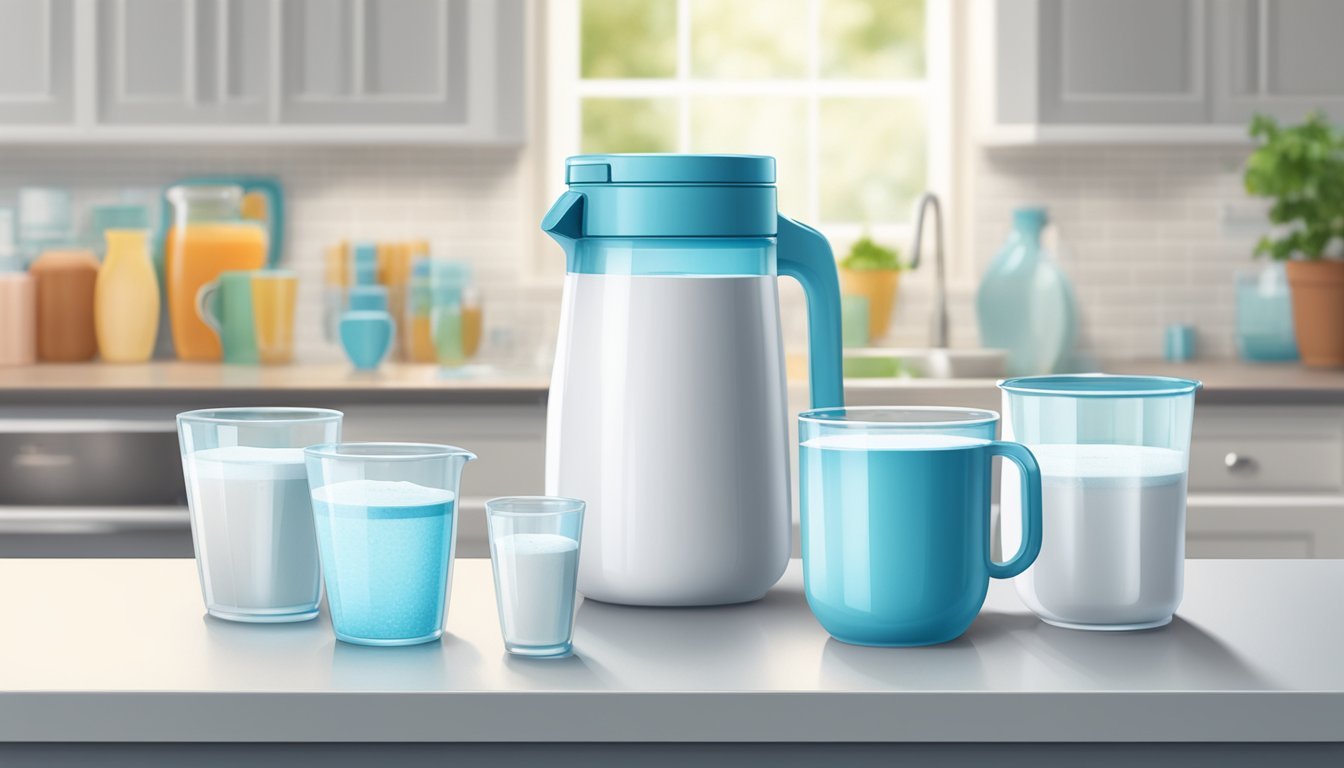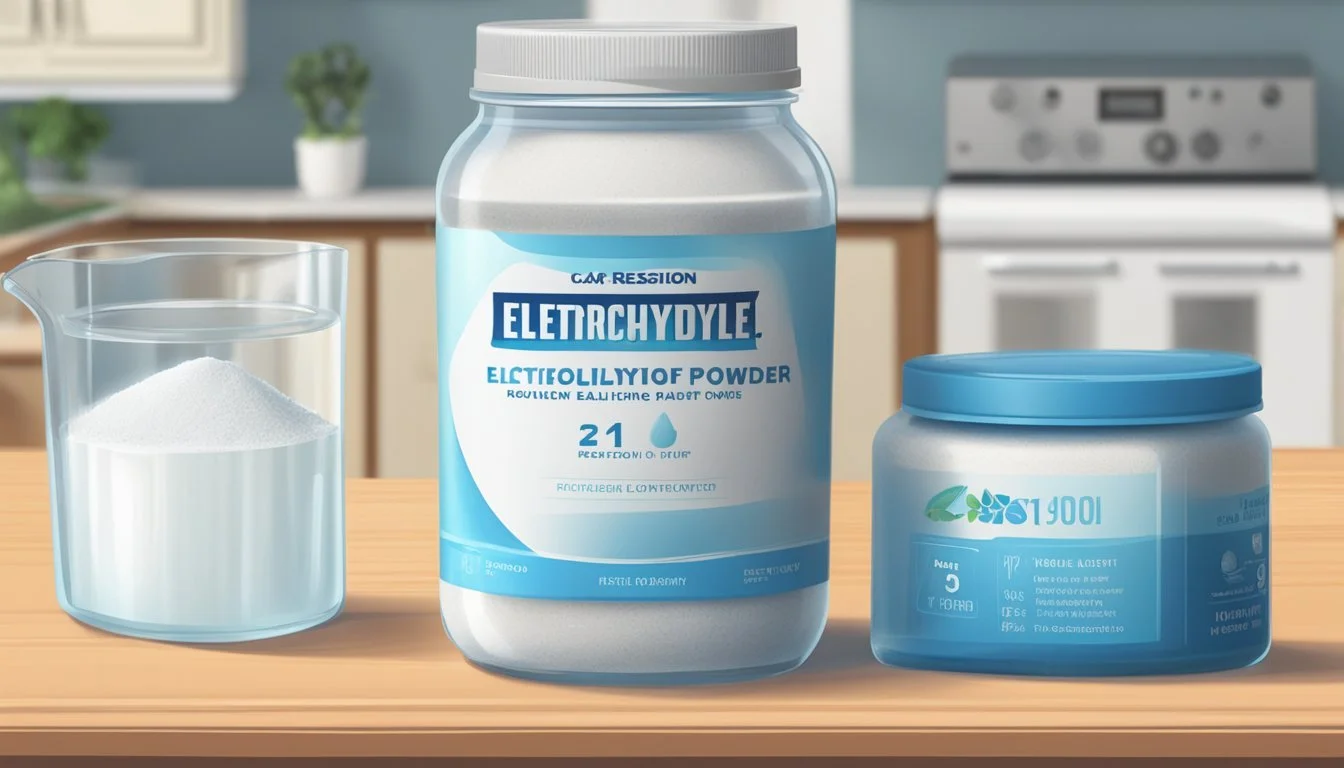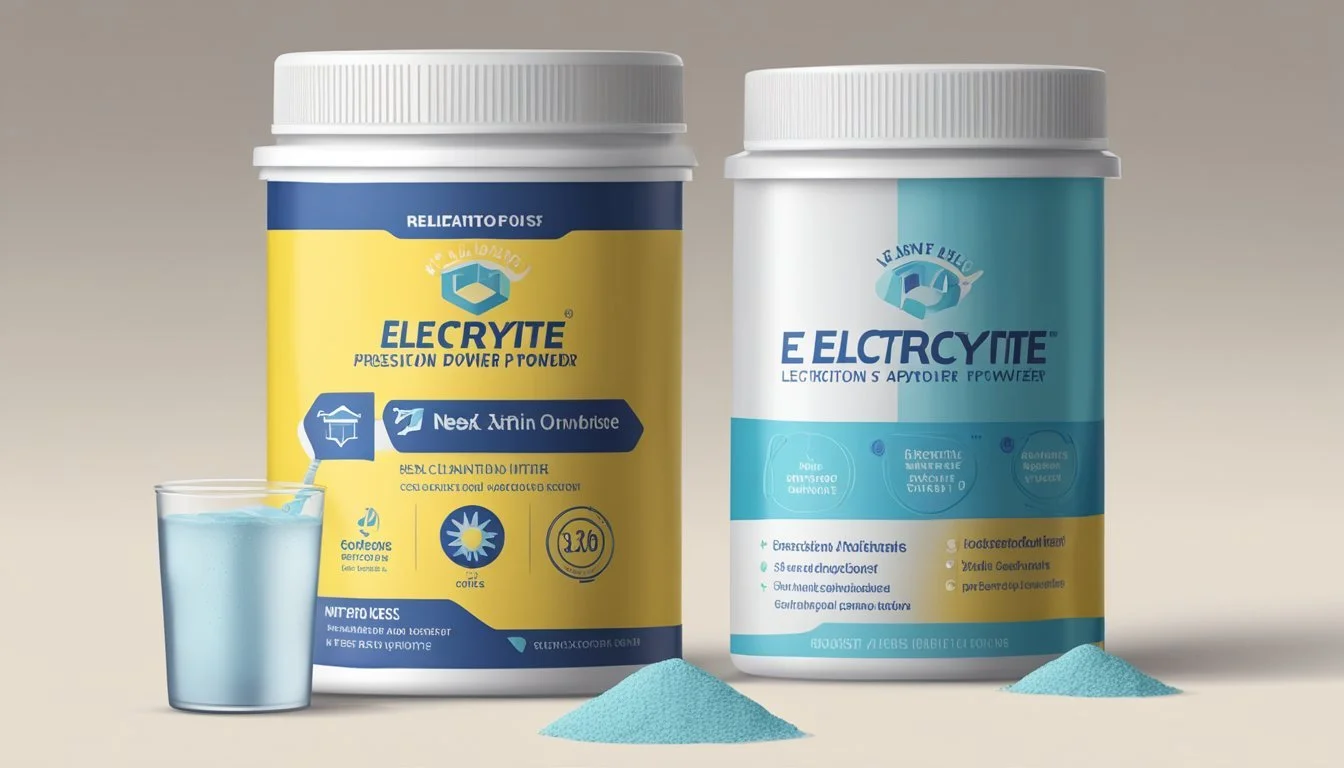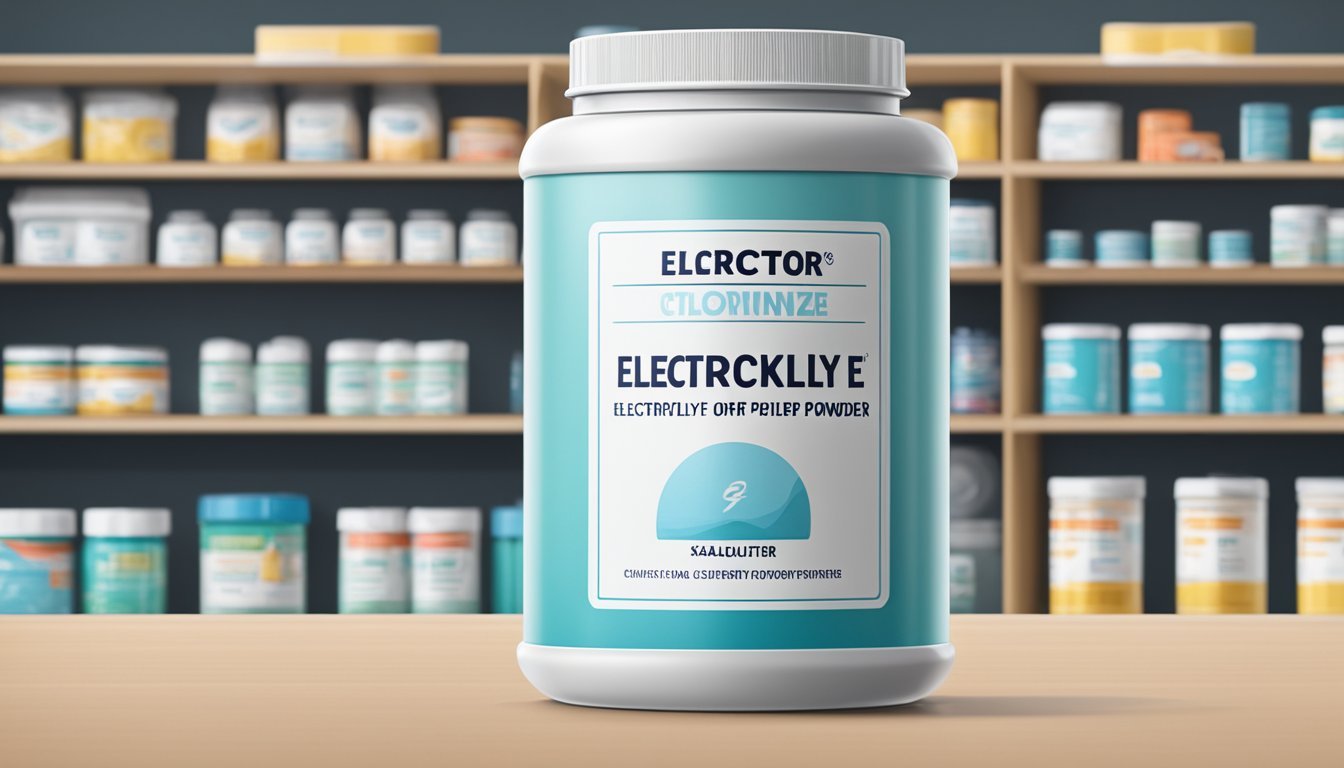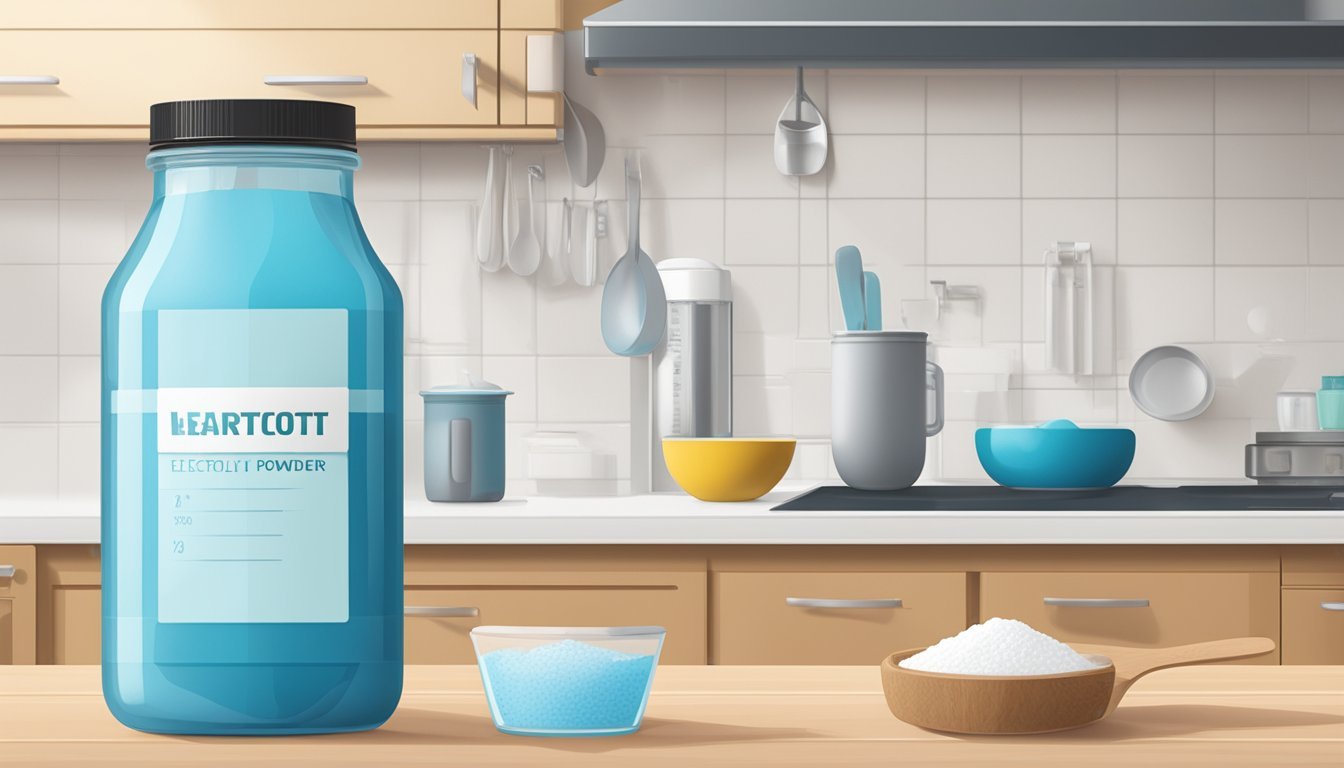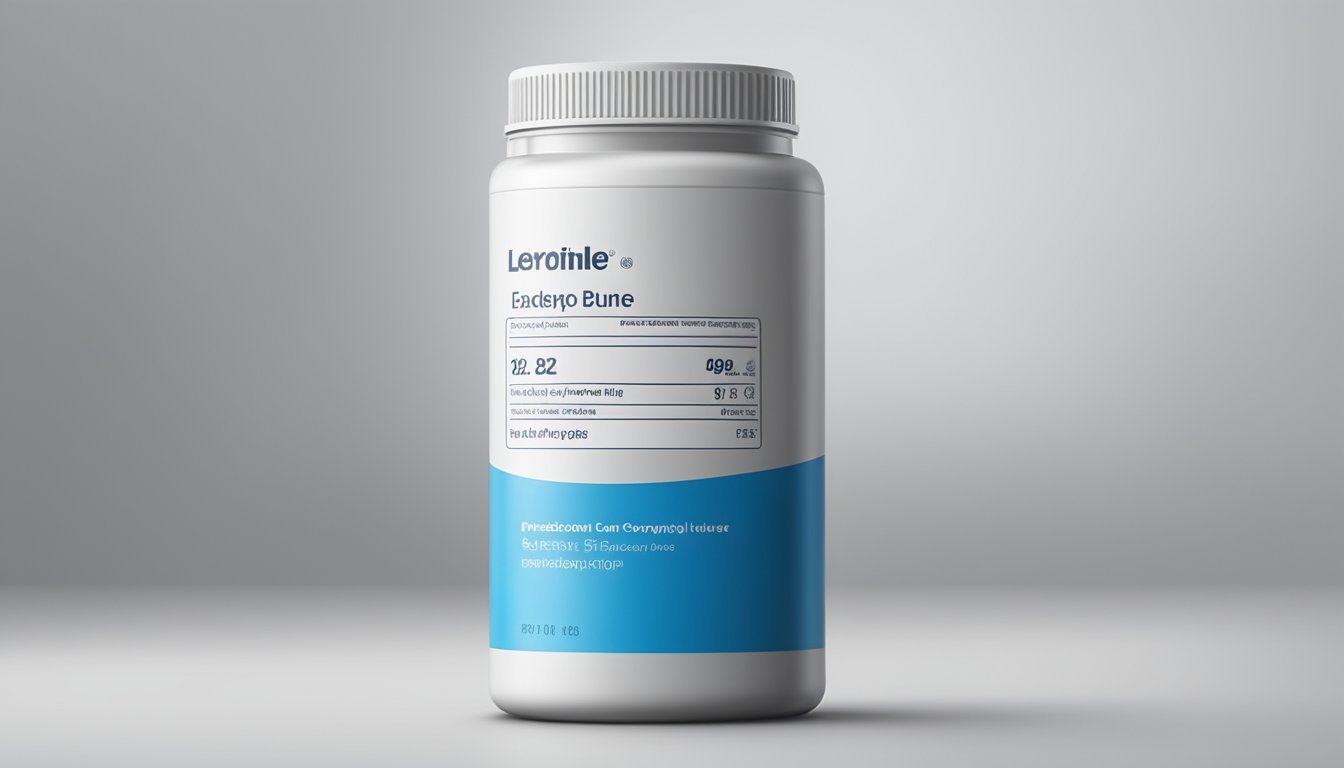How Long Does Electrolyte Powder Last?
Shelf Life and Storage Tips
Electrolyte powders are an essential part of many people's health and fitness routines, especially for those looking to maintain proper hydration and electrolyte balance. These powders are designed to replenish essential minerals lost through sweat and physical exertion. Typically, the shelf life of electrolyte powder is around two years from the date of manufacture, but this can vary based on the brand and composition of the product. Proper storage is key to ensuring the longevity of these powders, with most requiring a cool, dry place away from direct sunlight to prevent degradation.
The use of electrolyte powders extends beyond the athletic community; they are used in healthcare to prevent dehydration symptoms, which can range from confusion and nausea to more severe consequences like coma and death if not addressed. The balance of fluids and electrolytes is crucial for many bodily functions, and individuals should consult with a healthcare provider to determine their specific needs, particularly if they have underlying health conditions that could be affected by electrolyte imbalances. It is always important to follow the guidance of a healthcare provider when incorporating any supplement into a daily regimen to ensure it is safe and effective for one's health.
What Is Electrolyte Powder?
Electrolyte powder is a dietary supplement formulated to help replenish essential minerals, often lost through sweat during exercise, illness, or in high-heat conditions. These minerals, predominantly sodium, potassium, magnesium, and calcium, play critical roles in maintaining proper hydration, nerve function, muscle contractions, and overall fluid balance within the body.
Key Components of Electrolyte Powders:
Minerals: Sodium, Potassium, Magnesium, Calcium
Other Nutrients: Chloride, Vitamins
Possible Additions: Carbohydrates, Amino Acids
Electrolyte powders typically come in a variety of flavors and can be mixed with water or other beverages. The inclusion of minerals like sodium and potassium aids in nerve signal transmission and fluid balance. Magnesium is essential for muscle function and energy production, while calcium is crucial for muscle contractions and bone health.
Nutrient-rich, these supplements may also contain vitamins, carbohydrates for energy, and amino acids for muscle repair. Carbohydrates often serve to improve absorption of the electrolytes, while vitamins can support overall health and recovery processes. Electrolyte powders are versatile, being beneficial for athletes during strenuous workouts, individuals adhering to particular diets, or those needing extra support due to environmental factors, like heat.
It's important to use electrolyte powders as directed to ensure that one is getting the correct amount of nutrients needed to support their specific lifestyle and activities.
The Importance of Electrolytes
Electrolytes are essential minerals that play pivotal roles in maintaining the body’s hydration, ensuring proper muscle function, and supporting nervous system health. They manage the critical balance between the fluids within and outside cells and are involved in numerous bodily processes.
Balancing Fluid Levels
Electrolytes such as sodium, potassium, and chloride are crucial for hydrating the body effectively. They regulate the movement of water across cell membranes, which is essential for maintaining blood pressure and hydration levels. For athletes or individuals involved in rigorous exercise who sweat heavily, replenishing electrolytes is key to preventing dehydration.
Muscle Function
These minerals directly impact muscle function including contraction and relaxation. Calcium, for example, is necessary for muscle contractions while magnesium helps muscles relax, preventing muscle cramps that can occur during and after exercise. Potassium also aids in muscle and nerve communication, ensuring coordinated movement and strength.
Nervous System Health
The nervous system depends on electrolytes to transmit signals between cells. Imbalances in electrolyte levels can result in neurological issues such as dizziness, confusion, or impaired cognitive function. Maintaining an appropriate electrolyte balance supports overall nervous system health and can prevent complications, particularly in individuals with conditions such as diabetes that affect fluid and electrolyte levels.
Usage and Benefits
Electrolyte powders are formulated to support hydration and enhance athletic performance. They can be a pivotal part of an athlete's regimen, aid in recovery from illnesses, and prevent dehydration during high-intensity activities or illnesses that lead to fluid loss.
Optimizing Athletic Performance
Athletes engaging in prolonged or intense exercise may benefit from electrolyte powders because they replenish minerals lost through sweat. These minerals include sodium, potassium, calcium, and magnesium, which are crucial for muscle contractions and nerve signal transmission. Sports drinks often contain these electrolytes, but powders offer a customizable and often less sugary option.
Key Minerals:
Sodium: Regulates fluid balance
Potassium: Prevents muscle cramps
Magnesium: Aids muscle function
Calcium: Supports bone strength
Athletes can consult with healthcare providers to tailor electrolyte intake to their specific sports and conditioning needs.
Preventing Dehydration
Dehydration occurs when the body loses more fluids than it consumes. Symptoms can range from mild, such as thirst, to severe, such as confusion or nausea. Electrolyte powders help maintain fluid balance by enhancing the body's ability to retain water, thus preventing these symptoms.
Signs of Dehydration:
Thirst
Dry mouth
Decreased urine output
Regular use of electrolyte powders can be especially beneficial for individuals with high sweat rates or engaging in activities in hot climates.
Recovery from Illness
When individuals suffer from illnesses that cause vomiting or diarrhea, they may lose significant amounts of fluids and electrolytes. Replenishing these lost electrolytes is crucial to aid in recovery and maintain proper body function.
Helpful for Symptoms:
Diarrhea
Vomiting
Nausea
Healthcare providers may recommend electrolyte powders to patients recovering from such conditions to ensure a balanced electrolyte level and encourage fluid uptake.
Proper Storage and Shelf Life
In the context of electrolyte powders, the preservation of their potency and effectiveness is intrinsically tied to understanding and adhering to the designated expiration dates and storage recommendations.
Understanding Expiration Dates
Electrolyte powders typically come with an expiration date printed on the packaging, which should serve as the primary guideline for consumption. Generally, the shelf life of these products ranges from 2 to 5 years post-manufacture. The expiration date accounts for both the preservation of the product's potency and the prevention of degradation due to preservatives used in the formulation.
Factors Affecting Potency
Several key factors can influence the shelf life and effectiveness of electrolyte powders:
Temperature: Electrolyte powders should be stored in a cool, dry place, away from direct sunlight. Heat accelerates chemical breakdown, potentially reducing potency.
Humidity: Exposure to moisture can lead to clumping and may activate ingredients prematurely, reducing shelf life.
Packaging: Airtight seals and robust packaging materials protect powders from environmental exposure. Once the seal is broken, it's advisable to use the product within a more immediate timeframe.
Proper storage is crucial to maintain the quality and effectiveness of electrolyte powders, ensuring that they deliver the intended nutritional benefits up to and ideally through their marked expiration date.
Recognizing Signs of Electrolyte Imbalance
Electrolyte imbalance in the body is often evidenced by distinct symptoms, which may arise from various underlying causes such as dehydration, excessive sweating, or health conditions like diabetes. It's crucial to identify these symptoms early and consult a healthcare provider for proper management.
Common symptoms of electrolyte imbalance include:
Muscle cramps: A sudden, involuntary contraction of muscles, often signaling an imbalance of minerals like sodium, calcium, or potassium.
Fatigue: Persistent tiredness that doesn't improve with rest might indicate inadequate electrolyte levels.
Irregular heartbeat: Electrolytes are vital for heart health and imbalances can lead to palpitations or arrhythmias.
Confusion: In severe cases, an imbalance can affect mental functions, resulting in disorientation or difficulty concentrating.
List of additional signs to be vigilant for:
Headache
Swelling or puffiness
Numbness or tingling
Seizures
In specific circumstances, such as for individuals with high blood pressure, the symptoms may appear in the form of swelling or an increase in blood pressure readings due to an excess of sodium.
Replenishment of electrolytes is especially important after instances of excessive sweating or fluid loss to prevent symptoms from worsening. If any signs of an electrolyte imbalance are present, prompt medical attention is advised to assess the situation and determine appropriate treatment.
Choosing the Best Electrolyte Powder
When selecting the best electrolyte powder, it is important to consider the quality of ingredients and the specific needs of the individual, whether they are an athlete or someone with a casual interest in nutrition and hydration.
Analyzing Ingredients
The list of ingredients in an electrolyte powder provides critical insights into its efficacy and potential benefits. A registered dietitian would advise looking for a product containing a balance of essential electrolytes: sodium, potassium, magnesium, and calcium. The best electrolyte powder will often include these elements, which are important for maintaining hydration and muscle function. Some powders also incorporate additional minerals like zinc and phosphate for comprehensive support.
Consumers should check for the presence of unnecessary fillers, artificial flavors, or high sugar content, which could detract from the nutritional value. Options like Transparent Labs Hydrate or LMNT Zero-Sugar Electrolytes stand out for their clean formulations.
It is advised to gauge the inclusion of any natural hydrators such as coconut water powder, which can provide additional potassium and a hint of natural sweetness without the need for added sugars.
Essential Electrolyte Common Source in Powders Sodium Sodium chloride Potassium Potassium citrate Magnesium Magnesium oxide Calcium Calcium citrate
Considering Different Needs
Different individuals, particularly athletes, may require different formulations of electrolyte supplements. An endurance athlete might prefer a product like Skratch labs for its higher sodium content to replace what is lost through sweat. Brands like Nuun offer electrolyte tablets that are convenient for on-the-go hydration and are tailored to various levels of activity.
Careful selection based on one's lifestyle is important to prevent any undesired side effects that could arise from imbalance. A standard sedentary individual may require less sodium compared to an athlete, emphasizing the importance of choosing according to one's daily activity level.
Nutrition also plays a role in the decision-making process. For individuals focused on weight management or those with specific dietary restrictions, selecting an electrolyte powder with no added sugars or low-calorie options might be ideal. The powdered form of these supplements ensures that each user can customize the dosage to align with both their hydration needs and nutrition goals, mixing the precise amount into water as required.
Potential Health Concerns
When considering the shelf life of electrolyte powders, it's important to also be aware of potential health concerns that may arise from their use, particularly if they are used after their expiration date.
Consultation with Healthcare Providers
Individuals with pre-existing health conditions such as heart disease, high blood pressure, kidney problems, or a history of stroke should consult with their healthcare provider before using electrolyte powder. The healthcare provider can offer specific guidance that considers the individual's health history and current medications.
Awareness of Side Effects
The use of electrolyte powders can lead to side effects if not managed properly. Users should be aware of the signs of electrolyte imbalance, such as confusion, nausea, or muscle cramping, which could indicate either under- or overhydration. Conditions like hyperkalemia, which is an excessive potassium level in the blood, can occur from improper electrolyte supplementation. Sodium intake also requires careful management as excessive consumption can exacerbate health issues, especially in individuals with blood pressure concerns.
Incorporating Electrolytes into a Balanced Diet
Electrolytes play a crucial role in maintaining hydration and supporting various bodily functions. One should ensure adequate electrolyte intake through both natural foods and supplementation where necessary.
Natural Sources of Electrolytes
A varied diet rich in fruits and vegetables can provide most electrolytes that the body needs. For instance:
Potassium: Found in bananas, avocados, and coconut water, this mineral helps regulate fluid balance and nerve signals.
Magnesium: Present in pumpkin seeds and leafy greens like spinach, it is vital for muscle function and energy production.
Calcium: Spinach is also a good source of calcium, important for bone health and muscle function.
Sodium: While often associated with table salt, smaller amounts can also be found in foods like spinach and watermelon.
To integrate these into one's daily meals:
Include a banana or an avocado in breakfast smoothies or salads.
Snack on a handful of pumpkin seeds, or include spinach in sandwiches or stir-fries.
Consume coconut water as a refreshing midday drink, as it's especially rehydrating after exercising due to its high electrolyte content.
Supplementation vs. Diet
While natural food sources are the best way to get electrolytes, there are instances where electrolyte mixes might be appropriate:
Exercise: Intense workouts could lead to significant electrolyte loss through sweat, thus an electrolyte mix during or post-exercise can be beneficial.
Imbalances: Specific health conditions may require targeted electrolyte supplementation.
Convenience: Electrolyte mixes can offer a quick and convenient way to replenish electrolytes especially when access to electrolyte-rich foods is limited.
When choosing electrolyte mixes, one should opt for those with no added sugars to keep their diet balanced. Plain water remains essential for hydration but does not provide electrolytes unless it's an electrolyte-enriched version.

